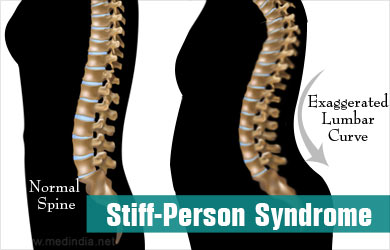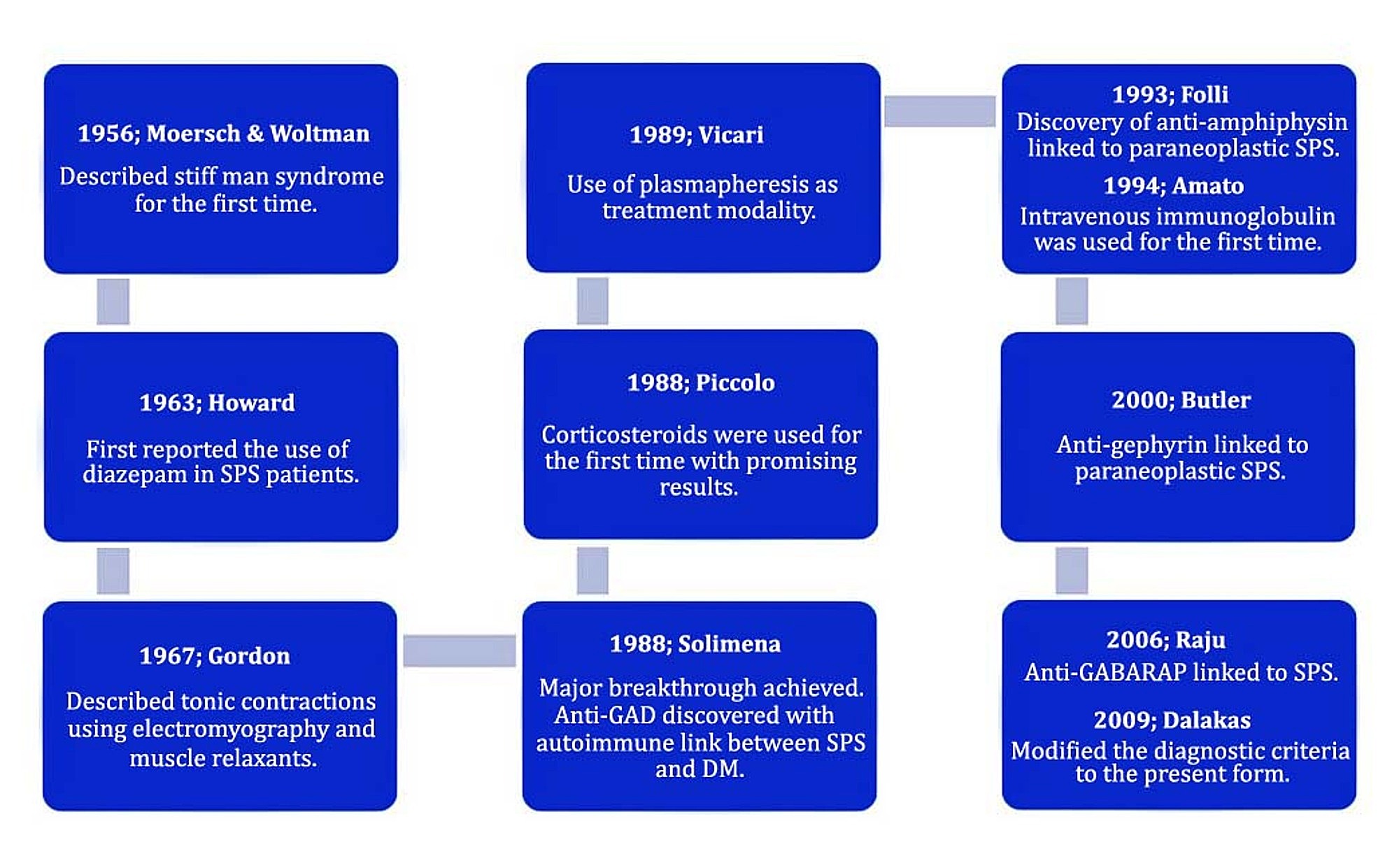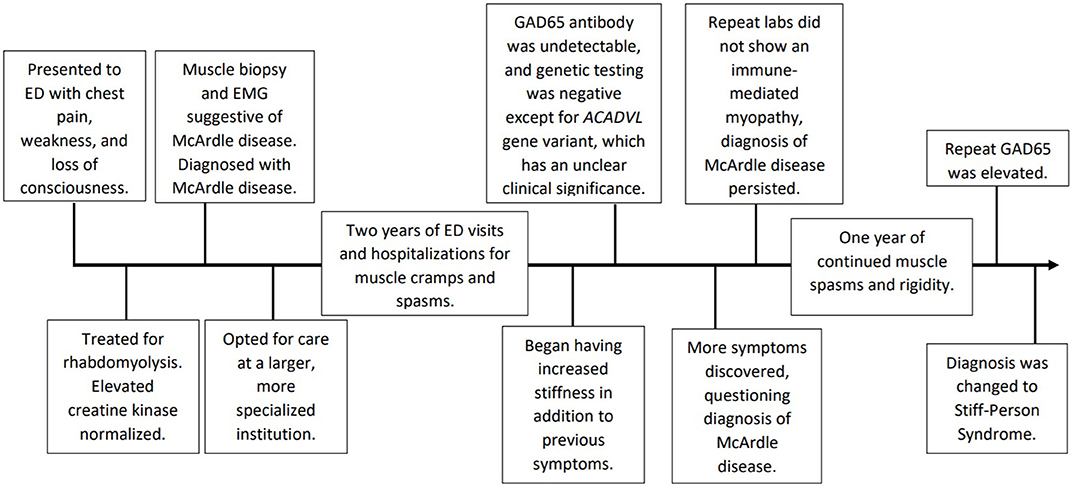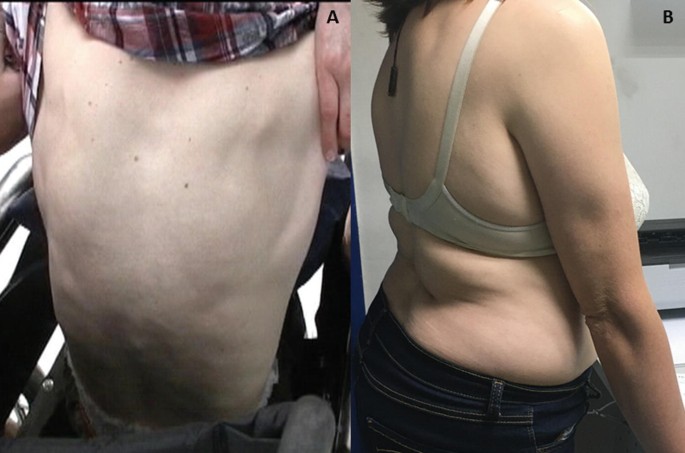Stiff-person syndrome
Spasms can generate enough force to fracture bone. But more people are affected than reported due to misdiagnoses.

Stiff Person Syndrome Insights Into A Complex Autoimmune Disorder Journal Of Neurology Neurosurgery Psychiatry
Muscle spasms can be so violent they can dislocate joints and even break bones.

. Stiff-person syndrome SPS is a rare neurological disorder with features of an autoimmune disease. The stiffness primarily affects the truncal muscles and is superimposed by spasms resulting in postural deformities. Symptoms include stiffening in the torso and limbs along with episodes of severe muscle spasms.
Symptoms include muscle spasms hyper-rigidity debilitating pain and chronic anxiety. It causes progressive muscle stiffness and painful spasms that can be triggered by a variety of things including sudden movement cold temperature or unexpected loud noises. Stiff person syndrome SPS is an autoimmune neurological disorder.
People with this condition first experience a stiffening of the muscles of their trunk followed over time by the development of stiffness and rigidity in the legs and other muscles in the body. Medications and immunotherapy maybe prescribed with aqua occupational and physical therapy. An autoimmune and neurological disorder that causes rigidity and spasms in the trunk and limbs.
Stiff-person syndrome SPS is a rare and disabling central nervous system disorder with no satisfactory treatment. SPS is labeled as a rare disease. Stiff person syndrome is a rare autoimmune movement disorder that affects the central nervous system the brain and spinal cord.
Stiff person syndrome SPS is a rare progressive syndrome that affects the nervous system specifically the brain and spinal cord. Stiff person syndrome SPS is a very rare disease affecting only one or two people per million. Muscular rigidity often fluctuates ie grows worse and then improves and usually occurs along with the muscle spasms.
Like other types of neurological disorders SPS affects your brain and spinal cord central nervous system. Muscle rigidity sporadic muscle spasms and chronic muscle pain characterize SPS. SPS is strongly correlated with autoimmune diseases and it is usual to find high titers of antibodies against acid decarboxylase GAD65.
Stiff-person syndrome SPS is a rare acquired neurological disorder characterized by progressive muscle stiffness rigidity and repeated episodes of painful muscle spasms. Symptoms may include extreme muscle stiffness rigidity and painful spasms in the trunk and limbs severely impairing mobility. SPS is characterized by fluctuating muscle rigidity in the trunk and limbs and a heightened sensitivity to stimuli such as noise touch and emotional distress which can set off muscle spasms.
Stiff-person syndrome SPS also known as stiff-man syndrome SMS 1 is a rare neurologic disorder of unclear cause characterized by progressive rigidity and stiffness. Why Choose Johns Hopkins. Stiff person syndrome SPS is a neurological disease with autoimmune features.

Stiff Person Syndrome

Xkpjfroztfpapm

Stiff Person Syndrome Causes Symptoms Diagnosis Treatment Prevention

Review Of 23 Patients Affected By The Stiff Man Syndrome Clinical Subdivision Into Stiff Trunk Man Syndrome Stiff Limb Syndrome And Progressive Encephalomyelitis With Rigidity Journal Of Neurology Neurosurgery Psychiatry

Stiff Person Syndrome Spectrum Disorders More Than Meets The Eye Sciencedirect

Stiff Person Syndrome

Stiff Person Syndrome Fact Sheets Yale Medicine

Cureus Recent Advances And Review On Treatment Of Stiff Person Syndrome In Adults And Pediatric Patients

Stiff Person Syndrome Rare Disease Day Australia

Mt3wtgc9pk1mem

Stiff Person Syndrome Semantic Scholar
Cfxhusyqyiajbm

Frontiers Mcardle Disease Vs Stiff Person Syndrome A Case Report Highlighting The Similarities Between Two Rare And Distinct Disorders

Stiff Person Syndrome Spectrum Disorders Springerlink

Rtoavql3w3r3am

A Comparison Of The 4 Forms Of Stiff Person Syndrome Download Table

Sharing Mayo Clinic Diagnosed With Stiff Person Syndrome Mayo Clinic News Network